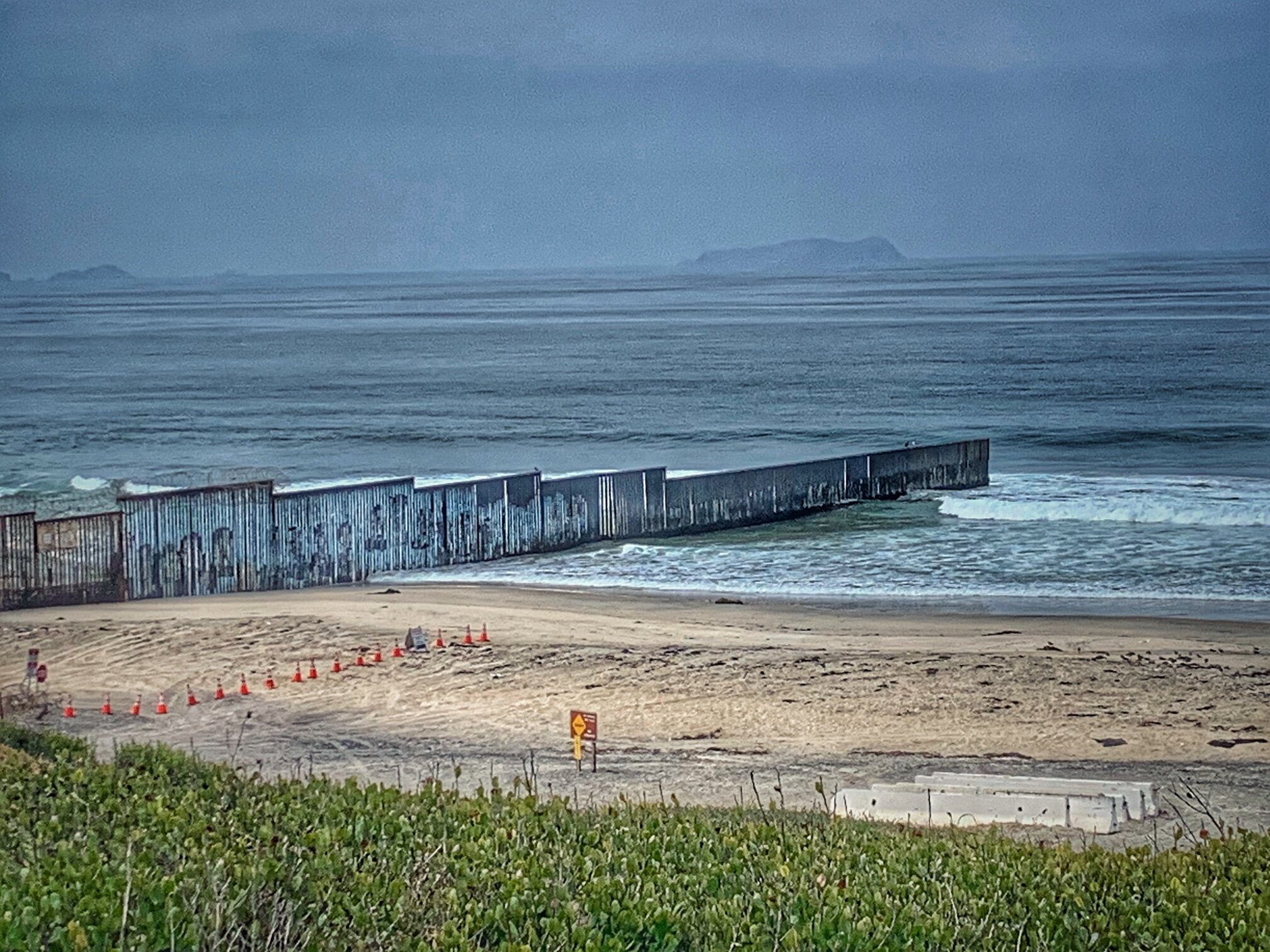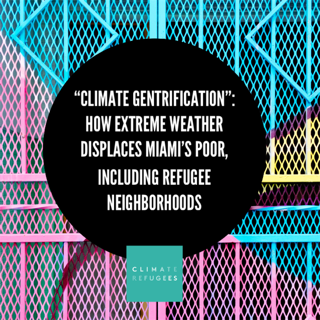CBS’ long-running television newsmagazine Sunday Morning covered climate displacement in a segment during last week’s broadcast, asking whether there may be a perfect place to live in the US for those concerned about sea level rise and other climate threats. While the segment makes a few interesting and important points, it ultimately misses the mark and fails to meaningfully contribute to the discourse around climate change and human mobility.
Given that Sunday Morning is one of the country’s most watched Sunday morning news programs, it is important to acknowledge that the segment’s few successes could help raise awareness among those who have never really thought about climate displacement. Notably, the piece makes it clear that there are serious equity issues involved, even just within the US. Correspondent David Pogue tells viewers that “not everybody has the option of moving,” and nods to the intersection of climate change and racial justice.
Interviewee Jalonne White-Newsome, a climate justice advocate and researcher, reminds Pogue that extreme weather events disproportionately hit communities of color, yet these same people are the least able to move. She also explains that the decision to migrate - or not - is complex and difficult to predict.
White-Newsome makes a salient point here, one deeply entrenched in discussions of systemic and structural inequities probably too weighty for Sunday morning television. To her point though, it would have been helpful of CBS to note the role individual insurance plays in mitigating risks and impacts, and how poverty, even race and poverty, can play roles in determining whether such is afforded to one or affordable to one. A point felt even greater on the global scale.
We explored this very point in a panel discussion with leading experts, viewable here:
Relatedly, while the televised segment does not raise the issue, the version published online links to a CBS News article on climate gentrification, an issue that cities around the country and the world are grappling with as those with means try to preempt disaster. We discussed these issues in two SPOTLIGHT pieces last year, even how climate gentrification is impacting refugee and immigrant communities in Miami.
Fortunately, the producers did include comments by Madison, WI Mayor Satya Rhodes-Conway, in which she explicitly says how important it is for cities to consider such equity issues, especially whether cities held up as ideal destinations are actually such great places to live for all of its residents.
There is one final positive aspect of the segment. While the discussion is oversimplified and implies that extreme weather events are necessarily the primary cause of climate displacement, Pogue and his producers do recognize that there are many concerns at play regarding climate change and the vulnerability of a particular place to its negative impacts. Sudden events like hurricanes and floods are considered alongside generally less flashy phenomena like drought and fresh water availability.
“What we must also hope is that it sparked thoughts on whether American climate displacement is but an example of larger-scale climate displacement felt elsewhere that the US government also has a responsibility to bear.”
Missed Opportunities
Unfortunately, the Sunday Morning team missed an opportunity to truly advance the discourse on climate displacement. The most glaring mistake was the use of the term ‘climate refugees’ to describe a family that moved to Vermont after losing their home in the 2018 Camp Fire, the deadliest wildfire in California’s history. As we at Climate Refugees have made clear, the term ‘climate refugee’ does not explicitly exist in international law, because a refugee is recognized as someone who flees conflict or persecution and crosses an international border. Using it to refer to an internally displaced household, such as the family in the segment, causes unnecessary confusion in an already complex discussion.
At the same time, there is a need to protect all people displaced or forced to migrate due to climate change impacts, whether internally or across international borders. Protecting the rights of climate displaced persons is paramount and governments must do more to support them, a dimension completely missing from the CBS segment.
CBS Sunday Morning missed another important opportunity to discuss first, the responsibility of the US government to ensure the protection of its citizens - including but not limited to planned relocation - from the hazards and impacts of climate change, and second, when American citizens are displaced, the responsibility to provide humanitarian assistance and safe return of displaced citizens, while also safeguarding and ensuring all their rights are maintained in displacement contexts.
“It would have been helpful of CBS to note the role individual insurance plays in mitigating risks and impacts, and how poverty, even race and poverty, can play roles in determining whether such is afforded to one or affordable to one. A point felt even greater on the global scale.”
The ad-hoc, household-by-household approach the federal and state governments use to respond to hurricanes and floods does not provide a promising model for dealing with large-scale climate displacement. It would have been quite useful for Pogue to have asked what the US is doing today to prevent unnecessary displacement and protect those who do end up having to move in the coming years.
While Pogue understandably kept the overall tone light and positive, it is reasonable to be concerned about the government’s role when it comes to climate displacement. America’s poor track record on climate at home and abroad, especially but not exclusively over the past four years, demands urgent vigilance from advocates and the press.
Finally, the segment missed the opportunity to highlight the implications of the voluntary large-scale migration it implied, such as what happens when these ideal cities it discussed experienced an unplanned swell in population. City planning includes estimations of social service needs, housing, health, infrastructure and more. What happens when individual citizens take up pathways overlooked or ignored by its government?
In a country facing immense disunity, we need a frank discussion about the possible economic, political, and social challenges as people move to different regions due to climate change, absent an understanding by the receiving community of the forces that drove that migration.
“CBS Sunday Morning missed another important opportunity to discuss..., the responsibility of the US government to ensure the protection of its citizens.”
As climate displacement rightfully becomes a more visible topic in the news, it is critical that outlets do the work required to present the issues properly, both because it informs the public at-large and because it sends the right signals to policymakers and advocates working to tackle the many challenges involved.
Last week’s Sunday Morning piece missed the mark on various fronts, but hopefully it has sparked discussions on the important issues it did highlight, namely that some Americans are already dealing with climate displacement because it is affecting some groups more than others.
What we must also hope is that it sparked thoughts on whether American climate displacement is but an example of larger-scale climate displacement felt elsewhere that the US government also has a responsibility to bear. (CBS Sunday Morning, CBS News)





